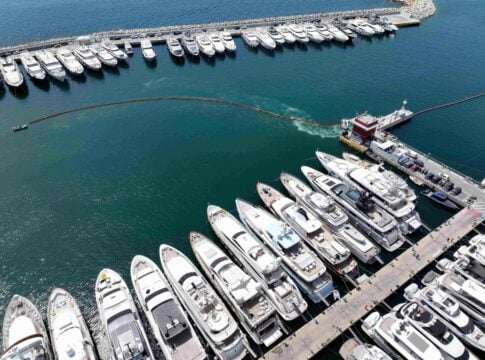The Ministry of Finance and the Public Debt Management Agency (PDMA) are leaving all possibilities open regarding the next moves in managing the Greek debt amidst the turmoil in the European bond market.
Executives of the financial staff appear particularly reassuring, citing on the one hand the extremely high cash reserves – they have again exceeded 40 billion euros – the very limited financing needs for this year, but also the fact that more than half of the lending program for this year has already been covered.
However, there are also some officials who estimate that despite the climate of great uncertainty in international markets – at least one credit rating agency will upgrade the Greek economy by the end of the month.
The largest daily increase in Germany’s borrowing cost since March 1990 and the period of the fall of the Berlin Wall was bound to affect all of the bonds of the European Union, as the markets are discounting the increase in state debt to finance defense spending. For Germany, the amount of 500 billion euros mentioned is equivalent to an increase in its debt by at least 20%.
Thus, the yield on the 10-year German bond climbed to 2.9% (the highest level in the last 10 years, equaling the performance of last October), dragging all European bonds upwards. The target was mainly countries with debt above 100% of GDP, but also significant annual financing needs. Italy’s borrowing cost, for example, rose to 3.91%, while France’s rose to 3.55%. The Greek 10-year bond stood at 3.69%.
The 3 advantages
In this environment of intense concern, Greece features the following advantages:
1. The country’s extremely high cash reserves. They have already returned to levels above 40 billion euros, which is due not only to the completion of half of the 2025 financing program as early as January, but also to the continued production of primary surpluses already at the start of the new year.
A new excess in tax revenues is expected to be announced for February during the next week. No other country in the Eurozone currently has such high cash reserves. The amount essentially allows the debt manager to remain out of the markets for a very long time without experiencing a problem with debt servicing.
2. The very limited financing needs. For this year, 8 billion euros have been planned to be raised from the markets and half of the program has already been covered.
This allows the PDMA to plan the next bond issue. A single successful issue is enough to complete the program.
3. Active swaps that essentially protect the budget from the risk of increased interest expenses (have been activated for a portion of the debt totaling more than 50 billion euros).













